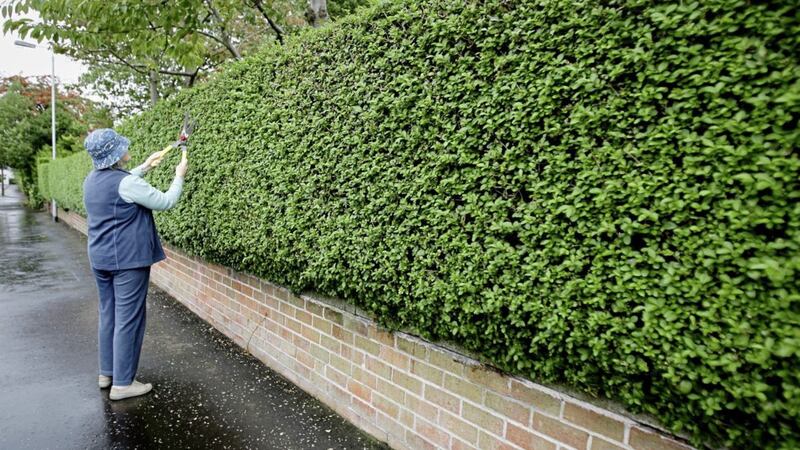EARLIER this week ex-Hurricane Ophelia brought plenty of wind and an equal measure of hysteria, fuelled by both traditional media and its even more hyperbolic younger cousin social media. The only casualties of the high winds in my garden were a clematis, whose prostration is easily rectified with a hard prune, and a broken willow branch that’ll be burned. Most importantly, the greenhouse came away completely unscathed.
The storm also highlighted the ability of weather systems to physically lift the earth and transport it hundreds of miles.
In England, on the periphery of the storm, the sky turned an apocalyptic orange colour. Some quite rightly described it as resembling a swirling sandstorm, because much of the dust that gave the clouds their distinctive hue originated in the Sahara Desert, from where it had been swept up and swept north.
Dry soil is always susceptible to wind, which is why it’s important to anchor your earth with plants if possible and ensure it retains moisture.
Over a comparatively short period in the 1930s, the once-fertile American and Canadian prairies were transformed, with parched soil blown away and a virtual desert left in its wake. This oft-overlooked episode in 20th century history, which provided the context for John Steinbeck’s Pulitzer prize-winning novel The Grapes of Wrath, is an enduring reminder to always respect the elements, particularly if you’re growing things.
While wind doesn't get the same negative press as slugs and snails it can be one of the gardener's worst enemies. High speed gusts can stymie plant growth, stunt trees and shrubs, and inhibit the development of young seedlings. Salt spray in the wind, a problem for coastal gardeners, can exacerbate its effects, leaving plants scorched and blackened. According to the Met Office, climate change will result in more extreme and unexpected weather, so those of us who suffered at the hands of the elements on Monday may need to up our game.
The most obvious solution to moderating the effects of the wind is to create a windbreak or shelter belt, which will reduce the wind's force on its leeward side to a distance of up to 10 times its height. The rationale behind these is to slow the wind rather than stop it, as anything too dense will only exacerbate the problem by creating turbulence.
An effective windbreak should be semi-permeable, filtering out roughly half the wind's strength. A solid barrier, such as a wall or fence, is unsuitable as it only creates swirling eddies on each side. Willow or hazel hurdles which are semi-porous will be effective and if you insist on having a solid barrier, try tempering its effects with some shrubs and trees planted as close as feasible.
Naturally, it's recommended to use wind-tolerant trees and shrubs, such as beech, which is deep-rooted, and olearea, which with its waxy leaves can withstand a battering from a salty force eight. Other suitable sheltering plants include Scots pine, hawthorn, New Zealand flax, griselinia and rosa rugosa. Willow is also a useful addition and can be fashioned into a living screen.
In areas where the wind isn't so fierce why not mimic nature and the manner in which it anchors the soil by using bamboos and ornamental grasses. Not only do these naturalistic plants filter the wind but they also look their most impressive when being whipped about on a breezy day.
Whatever plants and style you choose, ensure there are no gaps, as this will only funnel the wind and increase any damage.








